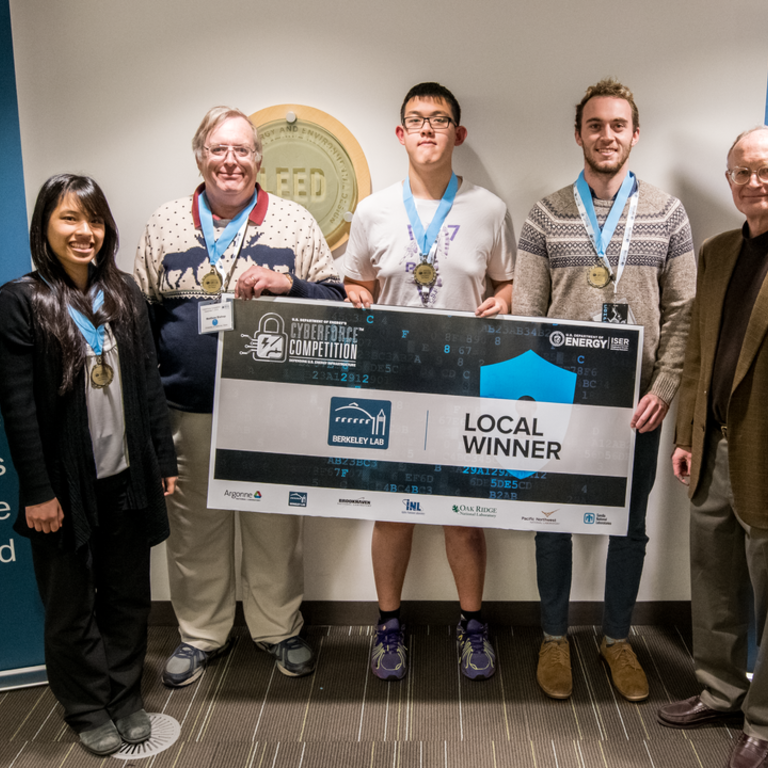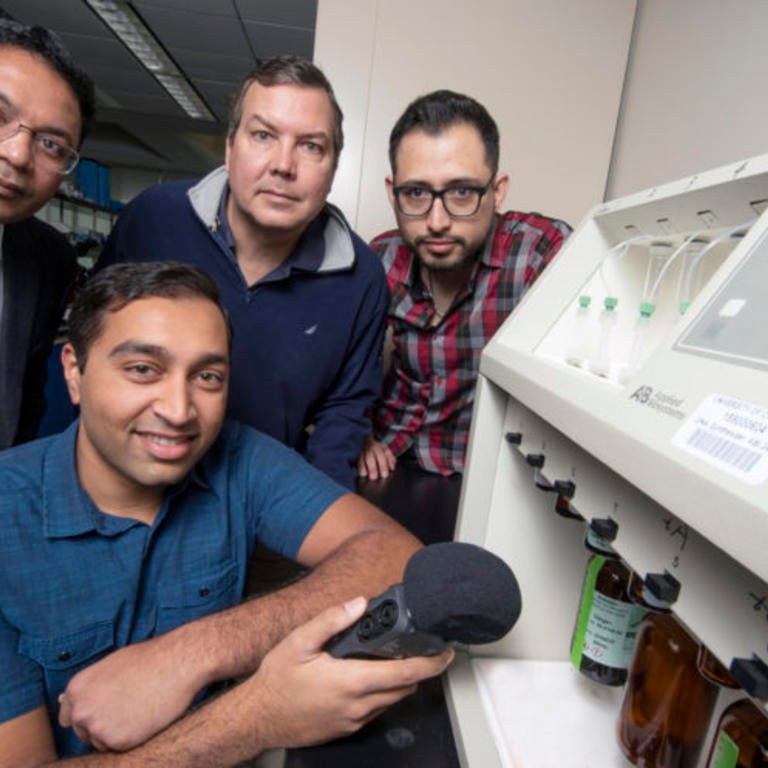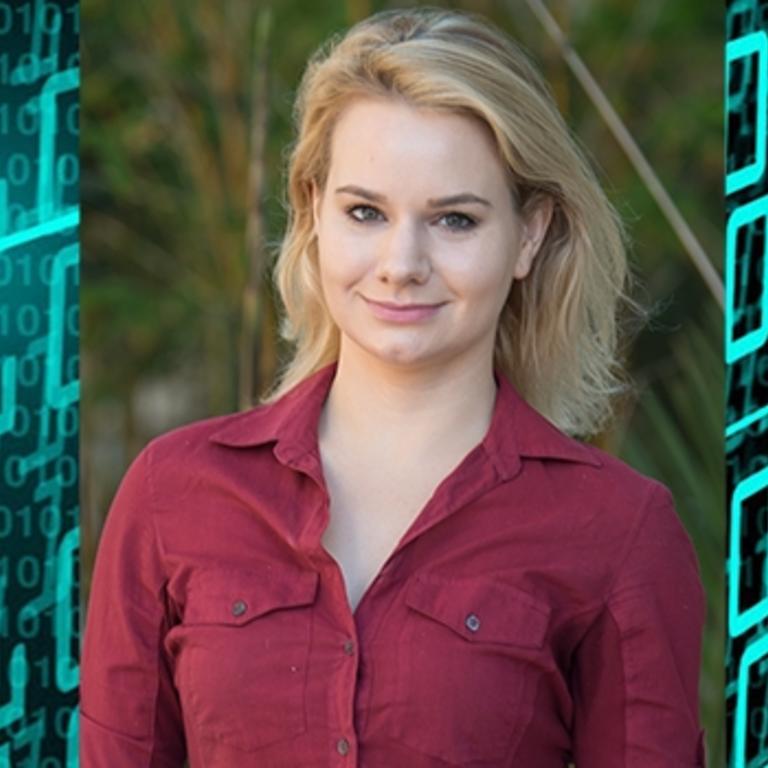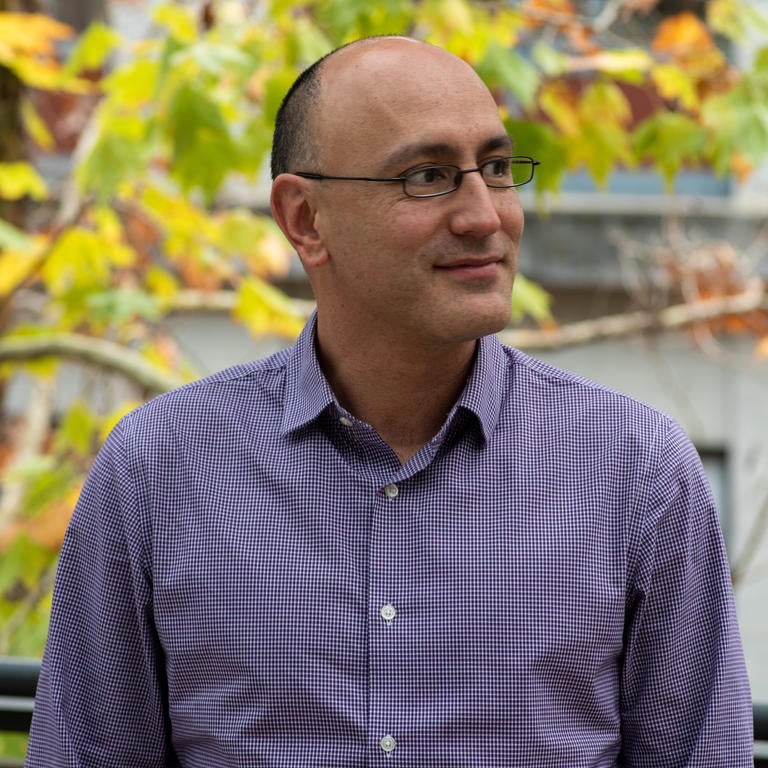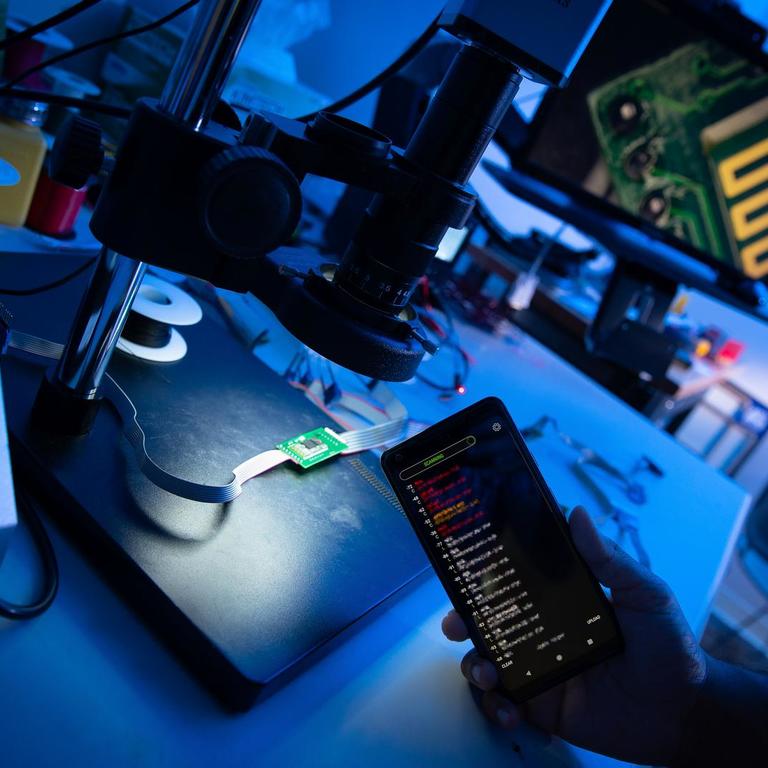Cybersecurity-CTA
Info Card - Climate and Power
Info Card - Cyber
Steve Benz
Ph.D in Biomolecular Engineering and Bioinformatics ‘12
Benz tells prospective engineers not to be afraid of the hard work involved. You’ll get great support at the University of California and it’s a rewarding career.
Steve Benz is president of the genomics group at NantOmics, LLC, and a pioneer of the emerging precision medicine industry. His company takes samples of tumor tissue from patients, sequences their DNA, and sifts through the resulting data to find statistical information that will help deliver the most effective treatment.
“An individual oncologist can only consider between five and ten variables when they make a decision about treatment options,” Benz says. “When you have millions of cells being altered by a cancer, there are so many factors that it’s far beyond the cognitive abilities of a single human to understand them all at once, so we use bioinformatic analysis to boil all that information down into something doctors can use to make a decision.”
Benz developed the technology, along with Zack Sanborn and Charles Vaske, while they were Ph.D. students at UC Santa Cruz. His advisors, Professor David Haussler (architect of the Human Genome Project) and Professor Joshua Stuart, helped them bring the Cancer Genome Browser to market, which might be why Benz calls defending his thesis one of the most powerful moments of his academic career.
“My entire life had been leading up to that moment. Here I was after working in the industry, studying for ten, fifteen years of my life, starting a company, standing beside leading experts who’d mentored me and pushed me to succeed, standing alongside patients that might benefit from my work and was proving to myself and others that I was an expert in the field. It was a very powerful moment.”
Growing up, Benz was drawn to computers and ended up majoring in computer science with minors in biology and chemistry as an undergraduate at Wheaton College in Massachusetts.
“Computer science is particularly interesting to me, because it teaches you to interact with computers, of course, but there’s usually an application; very few computer scientists just study computers.”
For Benz the application was bioinformatics: the confluence of big data, biology, and computer science. He had started his undergraduate education in 2001, the same year the first human genome was published in near entirety. The possibilities of combining computer science and biology sparked his imagination. After working at a technology start-up for a few years, he decided to go straight to the source of the human genome for his Ph.D.: the UC.
“The faculty were amazing -- they pushed us to succeed -- and because they were leaders in the field, we had access to the best technology and opportunities to collaborate with students and faculty at other UC campuses.
Benz points out that twenty years ago bioinformatics didn’t exist but now it’s among the most promising tools, particularly given concurrent advances in machine learning.
Benz tells prospective engineers not to be afraid of the hard work involved. Sure it might seem daunting but you’ll get great support at the University of California and ultimately it’s a rewarding career. Seeing your hard work make a tangible difference in someone’s life is a powerful feeling.
Learn more about Steve: https://youtu.be/847ypyAQHug
